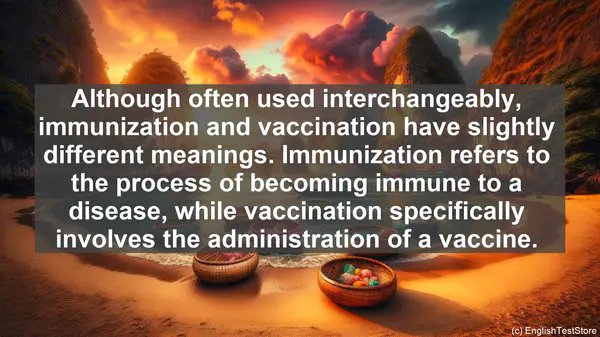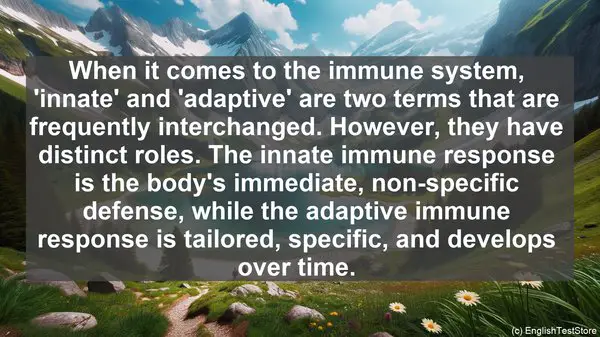Introduction
Welcome to our comparative immunology class. Today, we’ll be discussing a topic that often trips up even the most seasoned students – commonly confused words. Let’s dive in!
1. Innate vs. Adaptive
When it comes to the immune system, ‘innate’ and ‘adaptive’ are two terms that are frequently interchanged. However, they have distinct roles. The innate immune response is the body’s immediate, non-specific defense, while the adaptive immune response is tailored, specific, and develops over time.
2. Antigen vs. Antibody
Antigens and antibodies are often mentioned together, but they’re not the same. An antigen is a foreign substance that triggers an immune response, while an antibody is a protein produced by the immune system to neutralize the antigen.

3. Active vs. Passive Immunity
Active and passive immunity refer to how the immune system is activated. Active immunity is acquired through exposure to an antigen, either naturally or through vaccination. Passive immunity, on the other hand, is temporary and acquired through the transfer of antibodies, such as from a mother to her baby.
4. T Cells vs. B Cells
T cells and B cells are both vital components of the immune system, but they have different functions. T cells, including helper and killer T cells, directly attack infected cells. B cells, on the other hand, produce antibodies.
5. Humoral vs. Cell-Mediated
The immune response can be divided into two types: humoral and cell-mediated. The humoral response involves the production of antibodies, while the cell-mediated response involves the activation of T cells to directly attack infected cells.
6. Immunization vs. Vaccination
Although often used interchangeably, immunization and vaccination have slightly different meanings. Immunization refers to the process of becoming immune to a disease, while vaccination specifically involves the administration of a vaccine.
7. Primary vs. Secondary Response
When the immune system encounters an antigen for the first time, the primary response occurs. It takes time for the immune system to mount an effective defense. However, upon subsequent exposure, the secondary response is faster and more robust due to the presence of memory cells.
8. Autoimmunity vs. Allergy
Autoimmunity and allergy are both immune-related conditions, but they have distinct mechanisms. Autoimmunity occurs when the immune system mistakenly attacks the body’s own cells. Allergy, on the other hand, is an exaggerated immune response to a harmless substance, such as pollen or certain foods.
9. Pathogen vs. Parasite
Pathogens and parasites are often associated with diseases, but they’re not synonymous. Pathogens are disease-causing microorganisms, including bacteria, viruses, and fungi. Parasites, on the other hand, are organisms that live on or in another organism, deriving nutrients at the host’s expense.
10. Resistance vs. Tolerance
In the context of the immune system, resistance and tolerance have different meanings. Resistance refers to the ability to prevent or control an infection, while tolerance is the ability to limit damage caused by the immune response itself, such as in cases of chronic inflammation.

